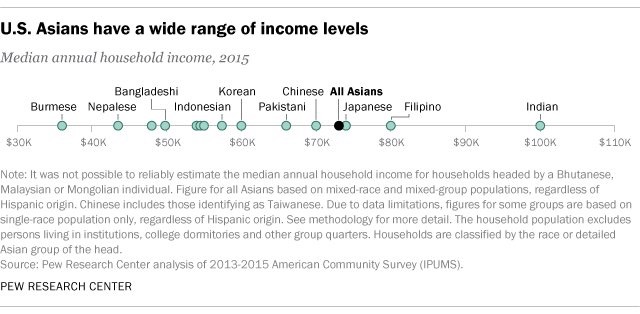
Language evolves, and social media has made certain phrases mainstream where they were relatively unknown. The fragment “black and brown”, often used in conjunction with “folks,” connotes certain issues and politics in 2019. It probably emerged as a term because there are 35% more Latinos than black Americans and the two form a minority social and political block.
 But sometimes terms made can be remade and refashioned. An Indian American friend in Silicon Valley noticed a few weeks ago that some Indian American activists and public intellectuals are using the term “black and brown” to include Indian Americans. This is rather easy because Indian Americans are literally brown. And in fact, they are browner on the whole than most Latinos.
But sometimes terms made can be remade and refashioned. An Indian American friend in Silicon Valley noticed a few weeks ago that some Indian American activists and public intellectuals are using the term “black and brown” to include Indian Americans. This is rather easy because Indian Americans are literally brown. And in fact, they are browner on the whole than most Latinos.
A plain reading of language suggests that including Indian Americans into this catchall category is perfectly reasonable. They are brown people who have been subject to racism and are marginal to the narrative of America. On the other hand, on various social metrics, Indian Americans do quite well. If the term “black and brown” exists to mobilize economically, socially, and racially, marginalized people, then Indian Americans, along with white Latinos, are edge cases of note. They are racially marginal, but economically and socially far less so.
To a great extent, the utilization of the term “black and brown” by progressive Indian American intellectuals and activists inclusive of their own identity strikes me as an appropriation of the term away from its intended ends. I can’t imagine that this won’t be noticed at some point. That being said, this is exclusively a matter of the Left, where intersection/racial coalitions are a major dynamic.
But, that means it is relevant to Indian Americans, who align themselves with the Democratic party on the whole (even if they are mostly moderately engaged immigrants, the Indian Americans born or raised in the United States are highly engaged and vocal).